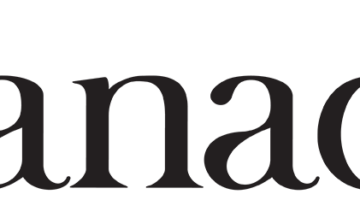
The public markets remain volatile but private financings continue to remain a viable way for life sciences companies to find the capital they need to support their work. The funding rounds this week included drug developers refilling their coffers as they progress to the clinic, as well as younger companies giving the world a first look at their new technologies. Here’s a recap of this week’s biotech and life science financings.
—Clinical-stage Neumora Therapeutics closed a $112 million Series B round of financing. The Watertown, Massachusetts-based company uses data science to inform the development of new drugs for neuropsychiatric and neurodegenerative disorders. Neumora’s most advanced drug candidate is in Phase 2a testing for major depressive disorder. The company said the new capital will be deployed across its drug pipeline of seven program. Last year, Neumora emerged from stealth with $500 million in financing and a partnership with Amgen.

With the Rise of AI, What IP Disputes in Healthcare Are Likely to Emerge?
Munck Wilson Mandala Partner Greg Howison shared his perspective on some of the legal ramifications around AI, IP, connected devices and the data they generate, in response to emailed questions.
—Less than a year after Odyssey Therapeutics launched with the backing of $218 million, the biotech startup unveiled $168 million more to move its drug pipeline closer to human testing. Founded by serial biotech entrepreneur Gary Glick, Boston-based Odyssey is developing small molecules and protein therapeutics for applications in immunology and cancer. No details about its pipeline of eight programs were disclosed but Odyssey said it aims to move “multiple candidates” into investigational new drug application-enabling studies in 2023. The latest financing was led by General Catalyst.
—Ascidian Therapeutics unveiled $50 million in financing and new technology that rewrites RNA as a way to treat inherited disorders. The startup says its approach offers key advantages over currently available genetic medicine technologies. Ascidian was incubated by venture capital firm ATP, which funded the Series A round. Ascidian’s lead RNA therapeutic candidate addresses mutations of the ABCA4 gene, which lead to a range of vision loss disorders including Stargardt disease.
—Ochre Bio raised $30 million to continue its work developing RNA therapies for chronic liver disease. The Oxford, United Kingdom-based startup tests its drugs in donated human livers that aren’t suitable for transplant. Machine learning analysis of the data from these livers identifies and validates targets for its drugs. Ochre aims to use this analysis to identify which drug candidates to advance to human testing in 2024.
—Matchpoint Therapeutics unveiled a $70 million Series A round of financing to continue its work developing novel covalent molecules, initially focusing on applications in immunology. The biotech’s disease targets remain undisclosed. Covalent molecules form a stronger bond with their targets, which in turn results in better potency and selectivity of these medicines as well as a lower systemic exposure of the therapy. Sanofi Ventures led Matchpoint’s new round of investment, which follows a $30 million seed financing co-led by Atlas Ventures and Access Biotechnology last year.
—Cancer drug developer Mablink Bioscience raised €31 million to advance to the clinic with its lead therapeutic candidate. Lyon, France-based Mablink aims to improve the durability and tolerability of a type of cancer therapy called antibody drug conjugate (ADC). The biotech accomplishes this with chemical links that connect the toxic drug payload to the targeting antibody of an ADC. Mablink’s Series A financing was led by Sofinnova Partners and Mérieux Equity Partners.
—Pleno, a startup developing instruments intended to go beyond PCR testing, raised $40 million in Series A financing. The San Diego-based company says its technology, called Hypercoding, employs signal processing techniques from the telecommunications industry to deliver targeted biological information for applications that include clinical testing, biomedical research, screening and detection, and diagnostics. Pleno plans to use the capital to speed up development of its Raptor instrument, which it expects will become available for early customer access next year and fully available in 2024. Deerfield Management Company led the Series A financing.
—Obatala Sciences raised $3 million to ramp up commercialization of its human-derived hydrogels that can be used as media for growing cells in drug research. The New Orleans-based startup says its kits provide researchers with more accurate, human-based data across diverse populations. Obatala’s Series A financing was co-led by être Venture Capital and Oschner Health.
Photo: RomoloTavani, Getty Images














